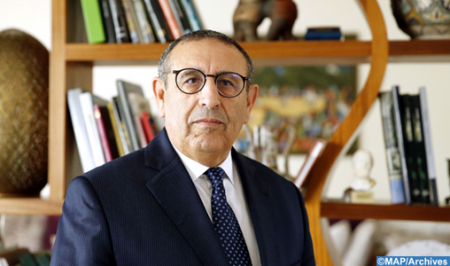
Morocco has urged African countries to adopt strategies based on innovation and good governance and promote for their populations security and development.
The call was launched by Morocco’s Ambassador to South Africa, Youssef Amrani, during a webinar under the theme “Regional Economic Communities (RECs) in the era of the African Continental Free Trade Area (AfCFTA), to adapt or to disappear?”
Africa needs to change its strategy to promote successful policies based on innovation and good governance, the diplomat said, stressing that in this critical health crisis period, the African continent is called more than ever to protect its population, its young generation, and to secure them trust, security, and development.
Regarding the Inter-African Free Trade Agreement, which came into force on January 1, 2021, Amrani noted that it fits perfectly into the vision of King Mohammed VI for an integrated and prosperous Africa.
The creation of this African continental free trade area marks only the beginning of a broader collective plan and a new model of supportive, efficient and inclusive co-development in the service of African countries, he stated.
In our continent, integration is a priority, so time has come to be pragmatic and proactive to break the borders, he said, noting that Morocco has experience in free trade agreements with the European Union or the United States and is ready to share it with all countries on the continent.
For his part, Chief Technical Advisor on the AfCFTA, Prudence Sebahizi, noted that several countries of the continent are required to implement strategies to achieve integration, which has not yet reached its potential in this context of health crisis.
He also stressed that the private sector, being the engine of economic growth of African states, is essential in the proper implementation of this area. They are encouraged more than ever to take the lead.
Abdou Diop, President of the Africa Commission at the Moroccan employers’ union, the CGEM, explained that the regional economic communities, which have faced their own challenges with the ratification and implementation of the Protocols of free movement, have a crucial role to play in promoting a better understanding of the concept of free trade.
